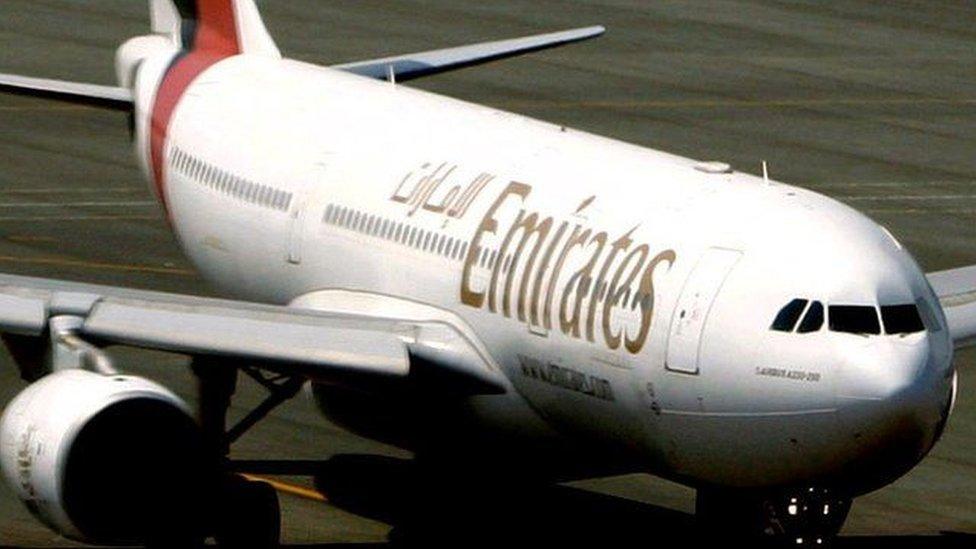Committee backs Scots air tax bill but calls for more details
- Published
MSPs have given the plan a cautious welcome
The Scottish Parliament's finance committee has backed the general principles of the government's new air tax bill - but said it was "essential" more information is provided.
A bill replacing air passenger duty with a devolved air departure tax is under consideration at Holyrood.
MSPs endorsed the general thrust of the bill, but said they were "disappointed" with the amount of information given.
Finance Secretary Derek Mackay said he would carefully consider the report.
The Air Departure Tax (Scotland) Bill, external, published by the government in December, sets out how new devolved powers on taxation would be used but does not go into detail on rates.
The government has announced its intention to reduce aviation tax by 50% by the end of the current parliament, with the levy eventually abolished "when finances allow".
While airport bosses have backed the plans, groups including the Chartered Institute of Taxation have argued that detail on rates should be included in the legislation, "to outline who will pay what, when they will pay it and who will be exempt".
Independent analysis
The finance committee's stage one report on the legislation echoes this, saying more information must be made available to parliament before MSPs are asked to set rates and bands for flights departing from Scottish airports.
Members recommended that Mr Mackay commission independent economic analysis of the proposed 50% cut policy, to be published before or at the same time as consultations begin on rates and bands.
And they said the bill should be amended to require ministers to bring forward regular reports on the socio-economic and environmental impact of the tax.
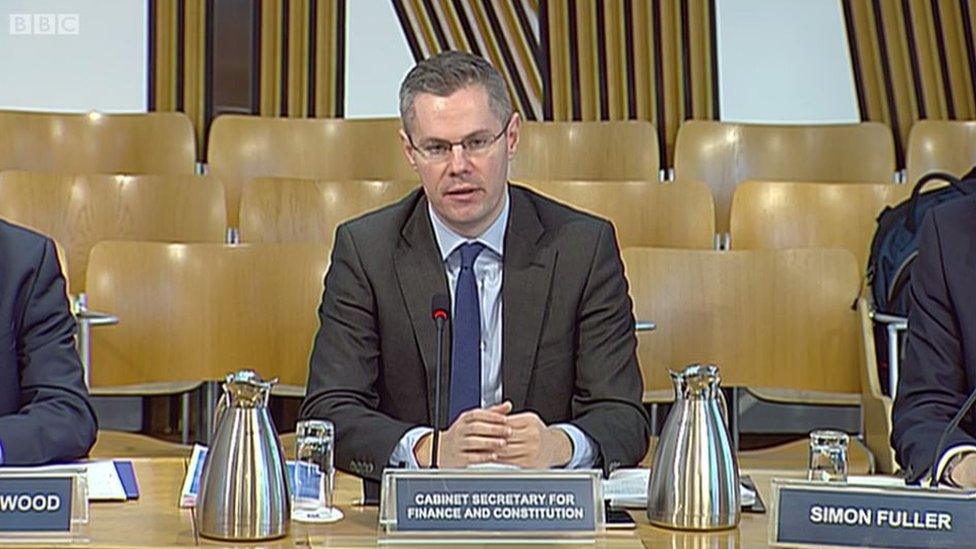
The committee has quizzed Mr Mackay about his plans for the new tax
Convener Bruce Crawford said the committee recognised the bill was enabling legislation, but voiced concern at the lack of information provided.
The SNP MSP said: "We are disappointed by the government's lack of information on exemptions to the tax, and on the economic, social, financial and and environmental impacts that will result from a 50% reduction in air departure tax.
"The committee considers it essential that evidence of these impacts, to support the government's policy approach, must be made available in good time to allow for parliamentary scrutiny.
"The finance committee will consider such evidence carefully when it comes to setting the first tax rates and bands under ADT. In the meantime, we support the general principles of the bill."
Mr Mackay welcomed the publication of the report, and said he would carefully consider its recommendations.
'Zero credibility'
He said: "UK APD has been the most expensive tax of its kind in Europe and continues to act as a barrier to Scotland's ability to secure new direct international services and maintain existing ones.
"Our plan to cut air departure tax by 50% by the end of the Parliament, and then abolish it when public finances permit, is a fundamental component to improving Scotland's international connectivity and providing a real boost to our economy, which is especially important given the economic threat posed by Brexit."
The Scottish Conservatives have backed the abolition of duties on long-haul flights.
The party's finance spokesman Murdo Fraser said: "Not only would it encourage more direct long-haul flights from Scotland, it would cut down the number of connecting flights which would help reduce our carbon footprint."
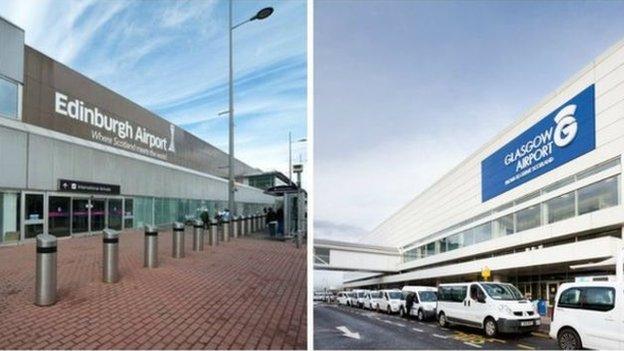
Scottish Labour have called on the government to scrap the duty plans which they say would provide "a huge tax break to airlines who simply don't need it".
Transport spokesman Neil Bibby said: "Across Scotland our schools, NHS and police force are facing hundreds of millions of pounds of cuts - it shouldn't be the SNP government's priority to make a business class flight cheaper."
The Scottish Greens also oppose the plans, arguing that cutting taxes will increase emissions. The party's co-convener Patrick Harvie, a member of the finance committee, dissented from the report's recommendation supporting the introduction of the legislation.
He said: "It's quite clear from the evidence heard by the committee that this policy has zero environmental credibility. The government has no aviation strategy that is in line with climate change obligations."
Scottish Liberal Democrat environment spokeswoman Mariam Mahmood said: "The Scottish government have by all accounts been utterly unable to explain how dramatically increasing aviation emissions would help Scotland meet its climate commitments.
"The reality is their plans would pump 60,000 tonnes of carbon emissions into Scotland's air every year, nothing short of an assault on the environment."
The stage one debate on the legislation is likely to take place after the Easter parliamentary recess. If the bill is passed by parliament, the first rates and bands for the tax are likely to be considered by MSPs after the summer recess.
- Published13 February 2017
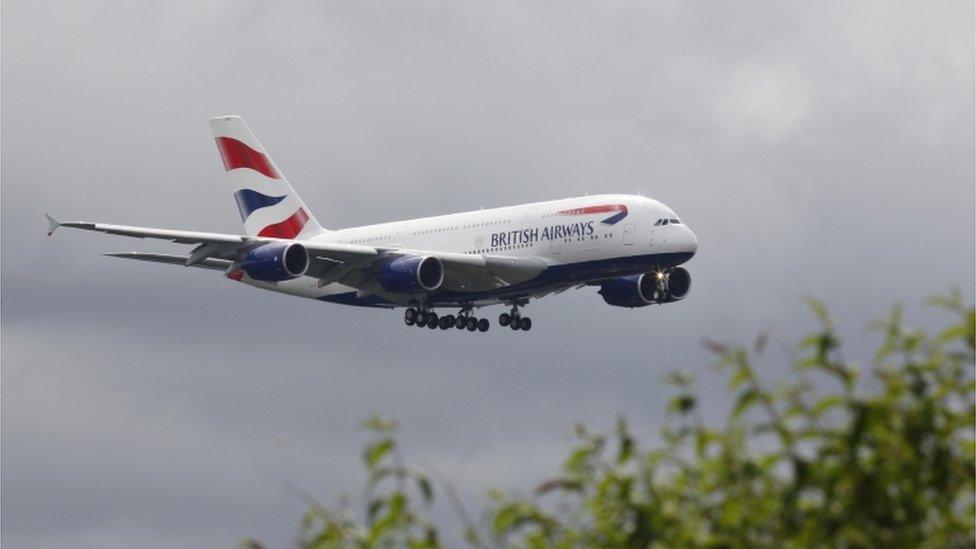
- Published1 February 2017
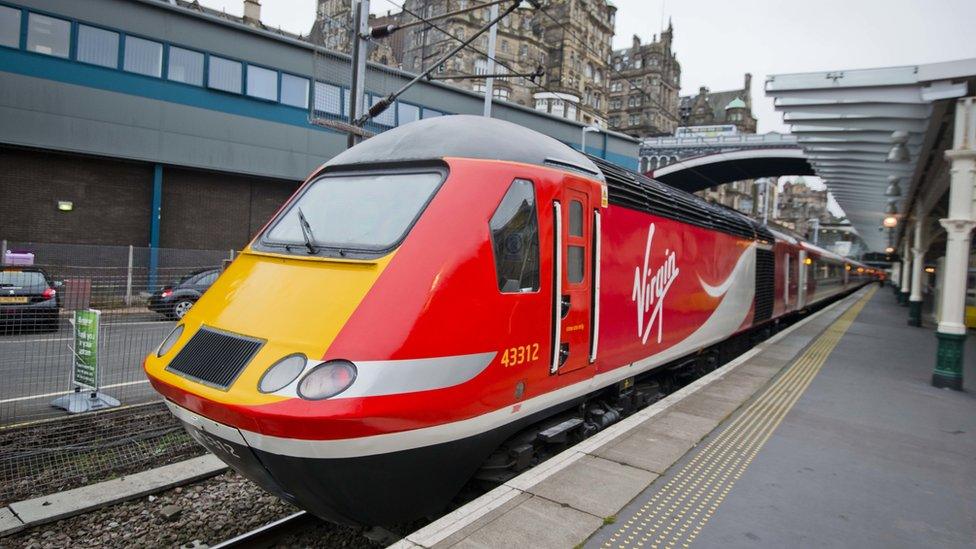
- Published19 August 2016
